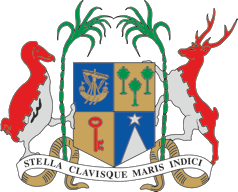Location
Although known to Arab and Malay sailors as early as the 10th century, Mauritius was first explored by the Portuguese in the 16th century and subsequently settled by the Dutch - who named it in honor of Prince Maurits van NASSAU - in the 17th century. The French assumed control in 1715, developing the island into an important naval base overseeing Indian Ocean trade, and establishing a plantation economy of sugar cane. The British captured the island in 1810, during the Napoleonic Wars. Mauritius remained a strategically important British naval base, and later an air station, playing an important role during World War II for anti-submarine and convoy operations, as well as the collection of signals intelligence. Independence from the UK was attained in 1968. A stable democracy with regular free elections and a positive human rights record, the country has attracted considerable foreign investment and has one of Africa's highest per capita incomes.
Mauritius is a parliamentary republic.
Source: CIA World Factbook
Members:
Resources
Displaying 41 - 45 of 67Land (Duties and Taxes) (Amendment of Schedule) (No. 4) Regulations 2011 (GN No. 236 of 2011).
These Regulations amend the Land (Duties and Taxes) Act in the Eight Schedule on the exemption from payment of duty or tax under Part II and Part III of the Act for transfer of land and other immovable property for specified purposes.
Amends: Land (Duties and Taxes) Act 1984. (2007-08-22)
Registration Duty (Amendment of Schedule) Regulations 2012 (GN No. 29 of 2012).
These Regulations amend the Registration Duty Act in Part VII of the First Schedule (which specifies rates of registration duty) and in the Second Schedule in item 4A. The Second Schedule concerns calculation of the value of property for duty purposes.
Amends: Registration Duty Act. (2007-08-22)
Transcription and Mortgage Act.
This Act makes provision with respect to the transcription of deeds regarding land transactions and rights and mortgages. The Act sets out the documents to be transcribe documents to be transcribed and how they are to be transcribed. Documents shall be transcribed by filing them with the Mortgage Office or the Conservator of Mortgages. The Act also provides rules for effects of mortgages and effects on mortgages of certain deeds such as sale if mortgages are not inscribed.
Registration Duty (Amendment of Schedule) Regulations 2011 (GN No. 235 of 2011).
These Regulations amend the Registration Duty Act in Parts III, IV and VII of the First Schedule, which specifies rates of registration duty.
Amends: Registration Duty Act. (2007-08-22)
Cadastral Survey (Application for PIN and Fees) Regulations 2012 (GN No. 24 of 2012).
These Regulations set out the form of an application under section 7(3) of the Cadastral Survey Act 2011. Such application shall be accompanied by the appropriate fee specified in the Second Schedule. Section 7 stipulates that any interested person may apply for the assignment of a Parcel Identification Number (PIN) in respect of any plot of land or unit to be assigned by the Chief Surveyor.


